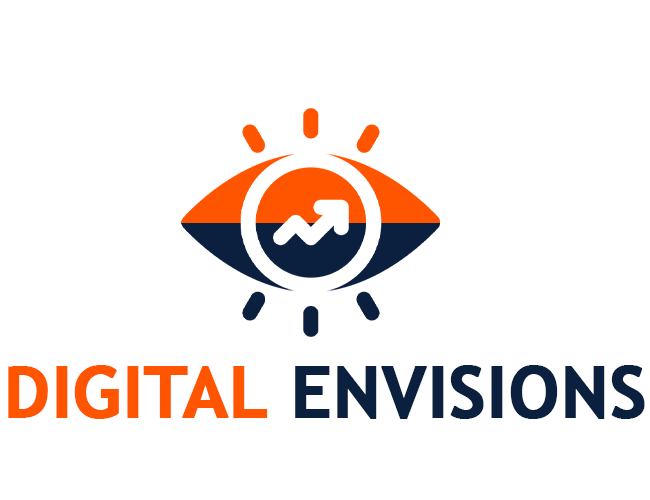Bengaluru, known as India’s Silicon Valley, is at the forefront of technological innovation, and the banking sector is no exception. Data analytics is pivotal in enhancing access to banking services, making them more inclusive and efficient. For those looking to contribute to this transformative field, enrolling in a data analytics course in Bangalore is a crucial step toward acquiring the necessary skills to drive these innovations.
Understanding Customer Needs
Banks in Bengaluru are leveraging data analytics to gain deeper insight into customer needs and behaviors. Banks can better understand their customers by analysing transactional data, spending patterns, and demographic information. This understanding allows them to tailor products and services to meet specific needs. For instance, data analytics can help identify customers who might benefit from personalised financial advice or specific loan products. A data analytics course in Bangalore equips individuals with the skills to analyse and interpret this data, enabling banks to offer more targeted and relevant services.
Enhancing Financial Inclusion
Financial inclusion remains a significant challenge in many parts of India, including Bengaluru. Data analytics helps banks identify underserved and unbanked populations, allowing them to develop strategies to reach these groups. By analysing geographic and socioeconomic data, banks can pinpoint areas with low banking penetration and deploy targeted initiatives, such as mobile banking units or partnerships with local businesses. Enrolling in a data analytics course in Bangalore provides the knowledge needed to analyse such data, supporting efforts to bring banking services to more people.
Improving Customer Experience
In today’s competitive banking environment, customer experience is paramount. Data analytics enables banks to enhance customer experience by predicting needs and proactively offering solutions. For example, analysing customer interactions across various channels can help banks identify pain points and streamline processes. If a customer frequently encounters issues with online banking, data analytics can highlight this problem, prompting the bank to provide additional support or improve the interface. A data analytics course teaches the techniques needed to analyse customer feedback and interaction data, driving improvements in service delivery.
Personalising Banking Services
Personalisation is a critical trend in modern banking, and data analytics is at the heart of this shift. Banks can offer personalised product recommendations, tailored financial advice, and customised marketing messages by leveraging customer data. For instance, analysing spending habits can help banks provide personalised savings plans or investment opportunities. A data analytics course covers the methodologies used to segment customers and personalise services, preparing professionals to create more engaging and effective banking experiences.
Enhancing Risk Management
Risk management is critical to banking, and data analytics significantly improves this process. Banks can better find the risk associated with lending and investment decisions by analyzing credit histories, transaction patterns, and market trends. Predictive analytics can also help find potential fraud or default risks before they materialise. Enrolling in a data analytics course in Bangalore provides the skills to develop and implement advanced risk models, enhancing the bank’s ability to manage and mitigate risks.
Streamlining Operations
Efficiency in banking operations is crucial for cost management and service delivery. Data analytics helps banks streamline operations by identifying inefficiencies and optimising processes. For example, analysing workflow data can reveal bottlenecks in loan processing or account management, allowing banks to make necessary adjustments. A data analytics course teaches the techniques for operational analysis and process improvement, enabling professionals to enhance the efficiency of banking services.
Supporting Digital Transformation
The digital transformation of banking is increasing, and data analytics is a cornerstone of this evolution. Data analytics helps banks design and optimise digital products, from mobile banking apps to digital wallets. By analysing user behavior on digital platforms, banks can enhance user interfaces, improve security measures, and introduce new features that meet customer needs. A data analytics course in Bangalore provides the technical skills needed to support digital transformation initiatives, driving the adoption of innovative banking technologies.
Facilitating Compliance and Regulatory Reporting
Adhering to regulatory requirements is a significant challenge for banks, but data analytics can simplify this process. Banks can ensure accurate and timely reporting to regulatory bodies by automating data collection and analysis. Data analytics also helps identify potential compliance issues and implement corrective measures. Enrolling in a data analytics course equips individuals with the knowledge to manage regulatory data and support compliance efforts, reducing the risk of penalties and enhancing the bank’s reputation.
Enhancing Credit Scoring and Lending Decisions
Traditional credit scoring methods often exclude large segments of the population. Data analytics offers alternative ways to assess creditworthiness, using non-traditional data sources such as utility payments, rental history, and social media activity. This approach can improve access to credit for individuals and small businesses that might otherwise be overlooked. A data analytics course in Bangalore covers the techniques for developing alternative credit scoring models, enabling banks to make more inclusive and accurate lending decisions.
Driving Strategic Decision-Making
Strategic decision-making in banking is increasingly data-driven. Banks can make informed decisions about product development, market expansion, and investment strategies by analysing market trends, customer behaviors, and competitive dynamics. Data analytics provides insights to identify opportunities and threats, supporting long-term planning and growth. A data analytics course prepares professionals to contribute to strategic initiatives, helping banks navigate the complex and dynamic financial landscape.
Conclusion
Data analytics is revolutionising the banking sector in Bengaluru, enhancing access to services, improving customer experience, and driving operational efficiency. Data analytics applications are vast and impactful, from personalising services to managing risks and supporting digital transformation. For individuals looking to play a role in this transformative journey, enrolling in a data analytics course in Bangalore offers the essential skills and knowledge needed to harness the power of data. As the banking industry continues to evolve, the contributions of skilled data analysts will be crucial in shaping a more inclusive, efficient, and customer-centric future.
ExcelR – Data Science, Data Analytics Course Training in Bangalore
Address: 49, 1st Cross, 27th Main, behind Tata Motors, 1st Stage, BTM Layout, Bengaluru, Karnataka 560068
Phone: 096321 56744



